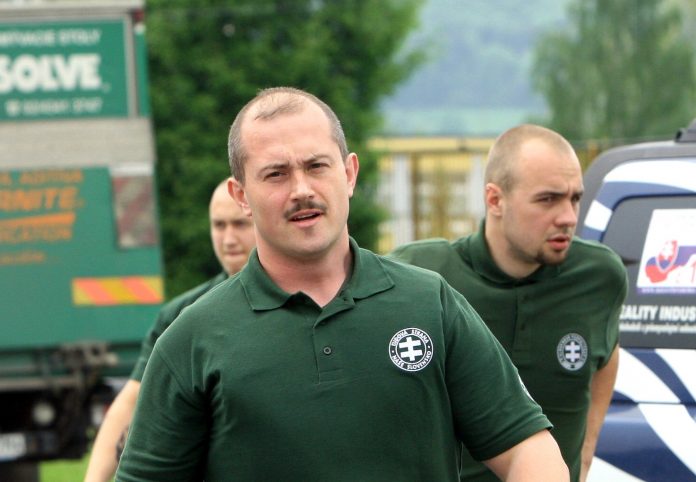What was perceived as far right many years ago – from the end of World War Two to the 1980s – was actually made up of the neo-Nazi and neo-fascist parties and movements that formed across Europe. In addition to this, Soviet control over half of the European continent had sent the remnants of the fascist regimes (which existed in many of the Central and Eastern European countries) into a provisional oblivion.
Nevertheless, the fascist and neo-Nazi sentiments of the far right was only a marginalised phenomenon. There was only one exception: the Italian Socialist Movement, which was the direct successor of Mussolini’s Fascist Party. And, as such, was considered a unique phenomenon in Europe.
However, the emergence of the National Front in France in the 1970s changed the game. The NF proved it was possible for the far right to have a place in parliamentary democracies. Austria’s Freedom Party, although founded in 1956 by ex-Nazis and on the margins of politics, emerged in the 1980s. In the 1990s, the secessionist Northern League joined the group.
A new European far-right was born and organised as a party of the establishment.
Since then, in nearly every European country there emerged a new type of far right party which based its policy on the fight against the European Union and the integration process.
Thanks to these parties, the old fascist right remained in the shadows. Their presence was marked by violent acts of extremist groups claiming the legacy of Adolf Hitler or Benito Mussolini.
But despite the fact the institutionalised far right knew how to attract and “pinch” people from the marginalised groups, these groups existed and proliferated.
In 2014, seven seats in the European Parliament went to three parties – one from Germany, another from Hungary and the third from Greece. All three parties were sympathetic to Adolf Hitler.
According to the latest polls, five parties of the neo-Nazi far right may secure eight seats in the next European Parliament.
The National Democratic Party in Germany, thanks to the electoral system which has no threshold for access to the European Parliament, will elect one MEP with just 1% of the vote. The Hungarian Jobbik, which is in decline and enjoys support from 9% of the voters, is expected to elect two MEPs (one less than in 2014). As for Greece’s Golden Dawn party, there are signs it will experience a slight decline as well. It’s expected to win just two seats in the European Parliament – one less than in 2014.
As for Jobbik, the party is trying to move far away from its extremist past which claimed the legacy of the bloodshed regimes allied to Nazi Germany. Due to such efforts, the party suffered a split organised by its most radical elements. However, according to members of the democratic opposition, Jobbik failed to convincingly condemn its previous positions of racism and anti-Semitism as well as its acts of physical violence against Roma citizens.
Meanwhile, Golden Down’s leadership faces a serious threat to its future. The party has been charged with allegedly serving as an organised criminal gang.
What is new is that Slovakia and Cyprus will elect for the first time neo-Nazi deputies.
Kotleba – People’s Party Our Slovakia (ĽSNS) led by Marian Kotleba was founded in 2010 and claims the legacy of Jozef Tiso. He was a priest who governed the Slovak Republic, a client state established by Nazi Germany during World War Two. After the war, Tiso was executed in 1947 for war crimes and crimes against humanity.
The party celebrated a successful electoral performance and has 14 seats in the 15-member National Council (parliament). Recent polls indicate that Kotleba’s party will come second in the popular vote with 12% and is expected to elect two MEPs.
The debate around the 2004 Anan Plan for Cyprus saw the predominance of nationalist rhetoric in the small island country. Although Cyprus joined the EU, the unresolved Cyprus problem and the Turkish occupation of a considerable part of the country, remains at the heart of a long-lasting nationalist movement. In addition, the financial crisis that struck the island a few years ago reinforced the nationalist camp which at the first electoral confrontation in 2014 favoured a conservative party.
Now, a neo-Nazi party is emerging. The National Popular Front (ELAM) was founded in 2008 by the Greek Golden Down. According to recent polls, this party has the support of 8% of the popular vote. As such, the party expected to win one seat in the European Parliament.
Eight neo-Nazi deputies will sit in the next European Parliament. This is the even darker side of European Politic’s dark side.

